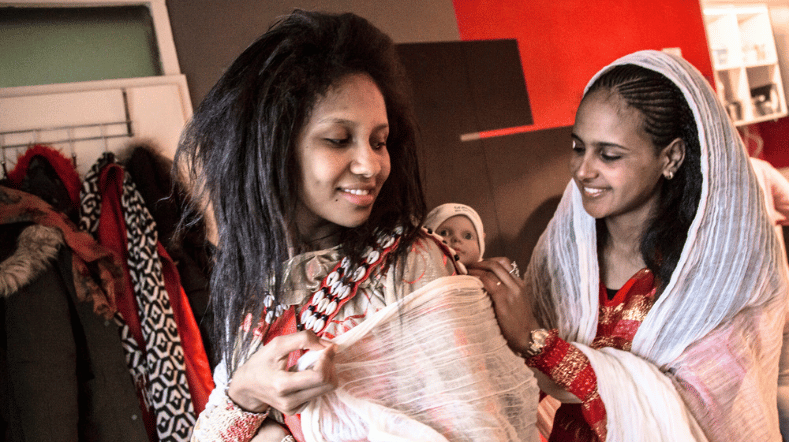
Group Care for pregnant women: A game changer for maternal and child care
Approximately 800 women die every day from preventable causes related to pregnancy and childbirth. Group care breaks the vicious circle of poor quality and inadequate utilization of services by offering care that addresses health holistically. It also focuses on health promotion and information and meets the needs of the end users. TNO and partners co-create strategies, learn implementation lessons and build ecosystems for learning and adaptation to bring group care to scale in seven countries.
Group Care Process and Implementation Lessons
In the Netherlands, TNO has studied group care for over 10 years. Over 13,000 women in the Netherlands use group care every year. This results in fewer hypertensive complications, increased rates of breastfeeding initiation, less smoking and less alcohol use. Which in turn results in lower healthcare costs on the long term making prenatal group care cost-effective.
Internationally, over 200 articles have been published on group care and there is strong evidence that Centering is effective at improving birth outcomes and women’s experiences. It also improves health behavior such as better attendance of care, increased use of contraception, uptake of services aimed at optimal mother child transmission for HIV , improved prevention of Malaria etc. These better outcomes are seen among diverse populations, in a variety of healthcare settings, at equal or reduced cost compared to other types of prenatal care.
In the EU project ‘GC1000’ , TNO leads a consortium with partners from academia, local and international NGOs, that study how to implement group care in 7 countries taking into account the local culture and health system. The project is retrieving co-creation process and implementation lessons from Ghana, South Africa, Surinam, Kosovo, Belgium, United Kingdom and The Netherlands. The ultimate goal is to study impact and co-develop context specific blue prints per country to allow the group care model to be brought to scale in each of these countries.
Systems Approach to Group Care Scale Up.
To scale successful intervention it is important to focus on process as well as implementation lessons per country. All the learnings are the core ingredients for the co-creation of blue prints with all stakeholders and actors in the pregnancy and child birth care pathways in their context. This means that all stakeholders and actors need to be involved at the conceptualization, implementation, monitoring and evaluation and learning sessions of the project in each of the seven countries. This requires a comprehensive systems approach ensuring an ecosystem for learning and adaptation to bring successful intervention addressing urgent problems to scale. TNO coordinates the systems approach and is a knowledge and innovation partner. We support local partners to position group care within their ecosystem and context.
In case you are interested in starting agroup care in your context and want to explore the opportunities, please contact Yvette Fleming.
Get inspired
Group Care during the first 1000 days makes a difference around the world


WHO launches new package to measure early development of children up to 36 months


Improving the health of mothers and newborns in Ghana

Digital, self-guided mental health program


